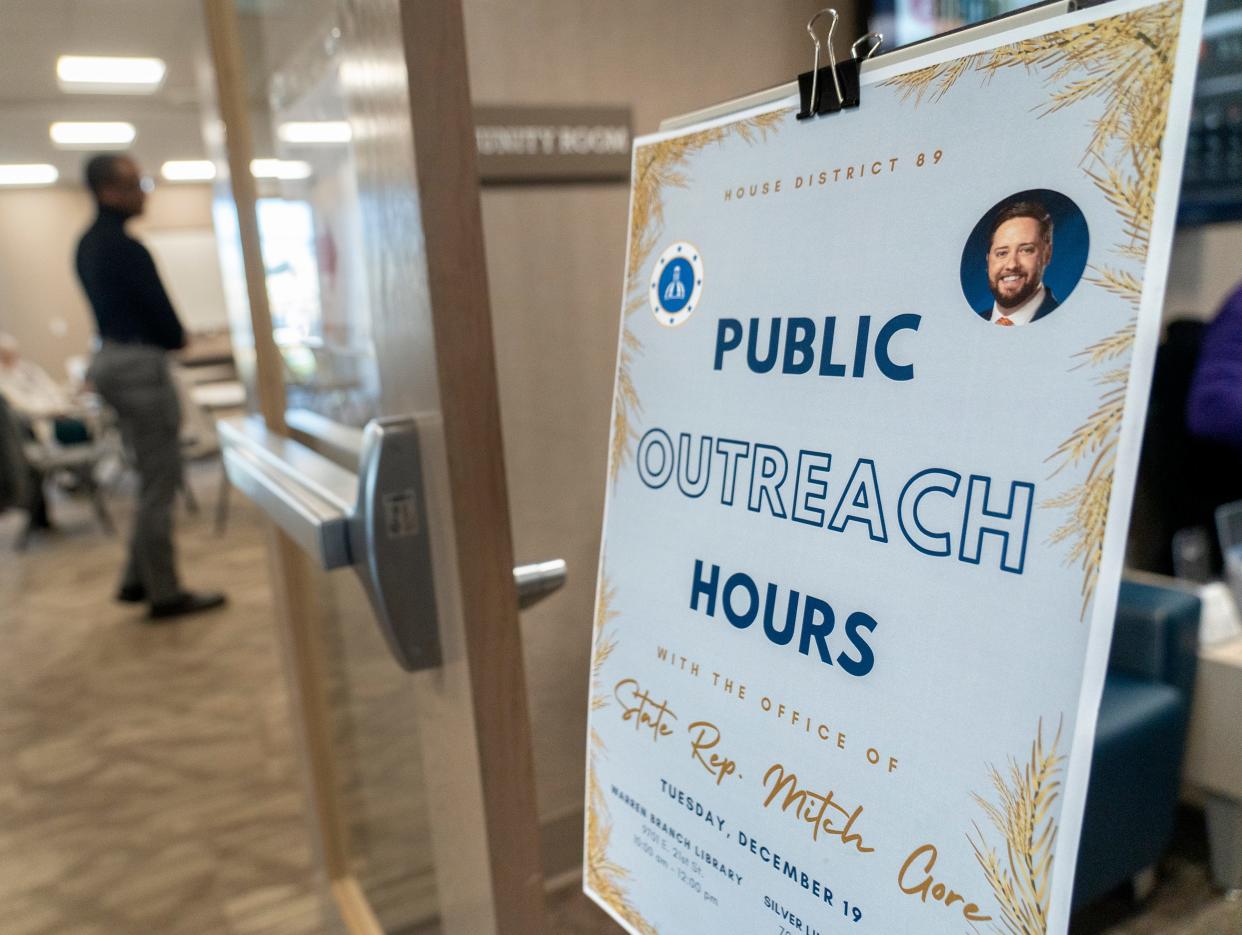Public access counselor constraints enable back-room shenanigans
The first words of the Constitution explain who runs the government: we the people. Those words mean governments exist to serve the people, not the other way around.
Increasingly, lawmakers are looking to limit the input and access of "we the people" into what happens, trying to keep as much as possible hidden behind closed doors rather than have their plans in the light where the people can voice concerns or even kill an idea.
It is why the people’s business is required to be taken up in public meetings, called with proper notice and open to all concerned parties. From school boards to municipalities and county governments all the way up to state governments, no law can be passed without it taking place in an open, advertised public session.
Transparency is vital when passing laws that affect our freedoms and our taxes.

Indiana’s Republican supermajority took a step to whittle that away when Gov. Eric Holcomb recently signed House Bill 1338. This bill significantly restricts the duties of Indiana’s public access counselor while also giving local governments greater latitude to restrict access and remove citizens from public meetings.
The public access counselor’s job is to provide advice to both citizens and governments concerning the state’s public access laws — the laws that require transparency in government. This person aids citizens and responds to inquires in public records requests or meeting access when they have been unfairly denied. The counselor also can educate both the public and government officials on their rights and responsibilities.
The public access counselor was initially appointed to a four-year term, but HB 1338 amends that to state it serves at “the pleasure of the governor,” which allows the governor to remove the officeholder at a whim.
At the same time, it limits the counselor to using only public access laws and court opinions in issuing advisories and opinions. These laws are written by the same legislators who are wary of public access and participation in meetings.
That wariness is elsewhere in the bill, which gives local governing authorities the ability to remove anyone it deems as “disruptive” from public meetings, which could be construed as anyone openly disagreeing with a bill.
This is important because of a case in Hancock County from 2018. There, voters rejected a property tax referendum to fund a new jail. Undaunted, the county council — in the midst of a committee meeting in an obscure area — gaveled in an unannounced special meeting and voted in an income tax increase.
Public access counselor Luke Britt strongly admonished the council, stating it violated the Open Door Law by not advertising the meeting 48 hours in advance. When challenged on it, one county councilor stated “what difference does it make?” Hancock County’s councilors got their new jail, and the taxpayers are on the hook for a 22-year income tax increase passed during the illegal basement meeting.
Without a public access counselor, or with that person’s hands tied, local governments will be emboldened to carry out more back-room shenanigans and basement-meeting dealings on controversial topics, all while being able to silence objections by removing anyone they deem to be “unruly,” which could simply be someone who sternly objects to an ordinance under consideration.
What happens in government should be out in the light. Your state legislators and governor are offering opacity instead of transparency.
Evan McMahon is chair of the Libertarian party of Indiana.
This article originally appeared on Indianapolis Star: House Bill 1338 whittles away transparency in Indiana
